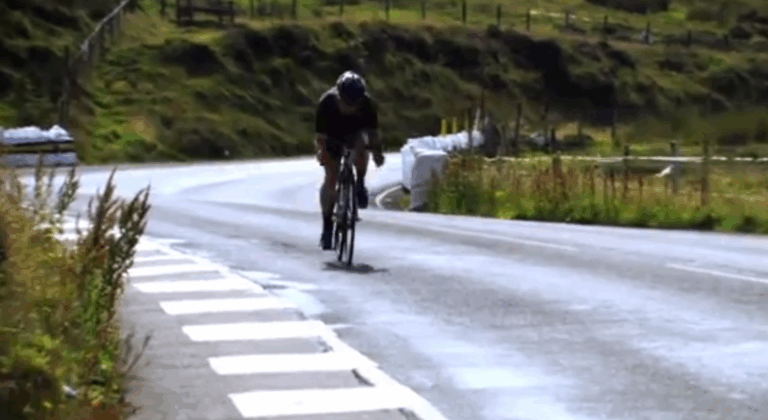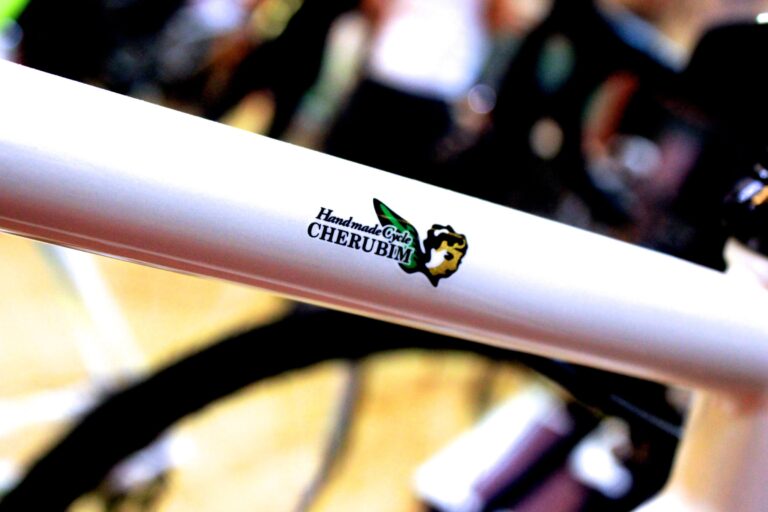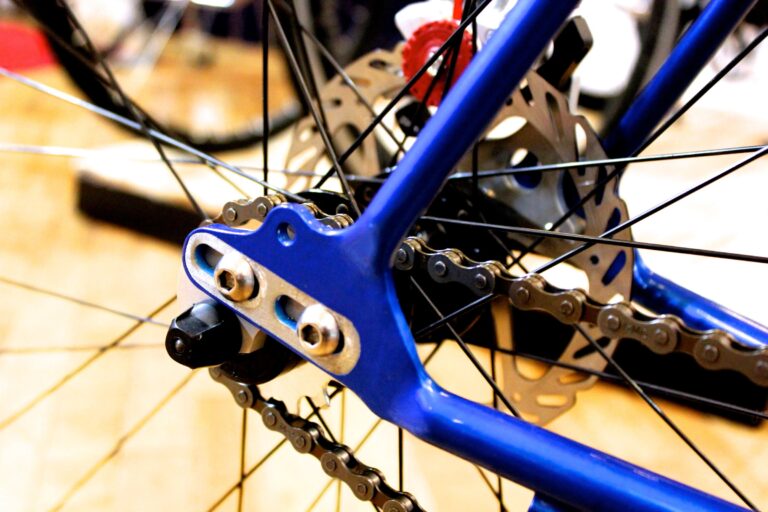Zipp have unveiled new handlebars at Eurobike, and a new carbon stem to be used from next season by Mark Cavendish (Omega Pharma-Quickstep).
And we took a first ride on their ‘mid-year’ release: a 60mm deep, alu-carbon clincher wheelset, aptly named the ’60’.
Two new handlebars were revealed. The Service Course SL-70, a bar with a 70mm reach and 128mm drop, will replace the Service Course CSL, or ‘super short reach’ bar, while the Service Course SL-80, a bar with an 80mm reach and 125mm drop, will replace the Service Course SL-SS (‘short and shallow’).
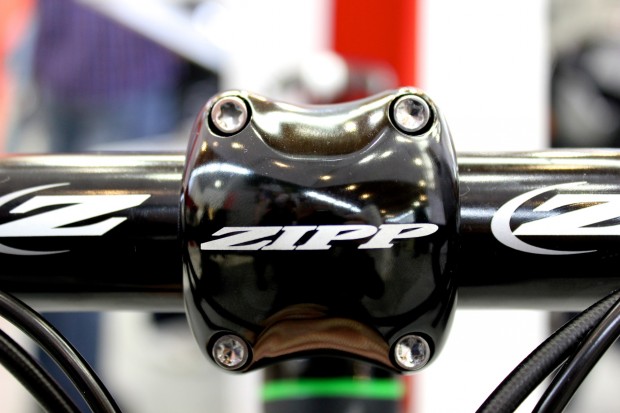
Key developments for the new bars include changes to the ‘ramp angle’ – the curved section of the bar from the ‘tops’ to the front of the drop (the latter dubbed the ‘brake perch’). Zipp claim the new ramp angles shorten the ‘reach’ of the bar, offering a more ‘neutral’ (read: straighter) wrist angle when riding on the hoods. The upshot? The position of the brake lever is effectively raised without the need to rotate the bar upwards.
Similarly, the ‘outsweep’ of the drop has been revised to four degrees. Zipp offered the following example: drop your hand to your side and your wrist will turn inwards, at an average, they claim, of between two and six degrees. Four degrees, they believe, offers a happy medium likely to suit the majority of riders.
Let’s take a closer look at each of the new offerings.
Zipp SL Sprint Stem
Mark Cavendish will use the Zipp SL Sprint Stem next season, having completed ‘out of competition’ tests this year on this carbon-bodied stem with aluminium face plate, steel bolts, and a -12 degree negative rise.
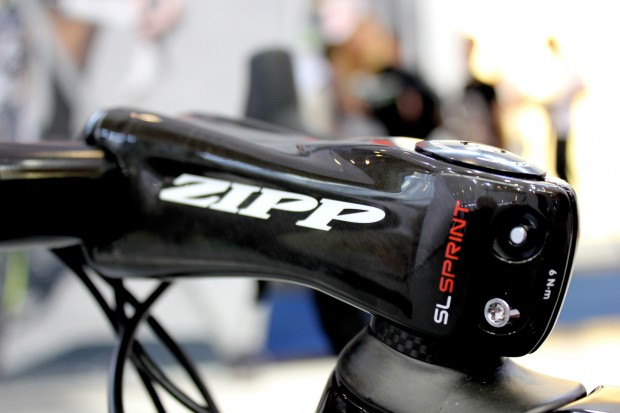
Zipp are claiming the highest stiffness-to-weight ratio in the industry of 1.83g/NM for the stem, one made from a hollow carbon construction with the same technology as SRAM’s ‘Exogram’ hollow carbon crank arms.
The weight? Zipp are claiming 165g for a 100mm stem. Five other sizes will be available: 90mm, 110mm, 120mm, 130mm and 140mm.
The Zipp SL Sprint stem will cost £199.
Zipp Service Course SL-70 and Zipp Service Course SL-70 Ergo handlebar
The ’70’ of the title of both bars refers to their ‘reach’ – the horizontal distance from the centre of tops to the brake perch (picture viewing the bar from the side). The Ergo differs only in the shape of the top, which is flat.
The SL-70 will replace the Service-Course CSL (or ‘super short reach’), and be made available in four widths: 38, 40, 42, and 44cm, measured centre-to-centre from the ‘brake perch’ – an industry standard.
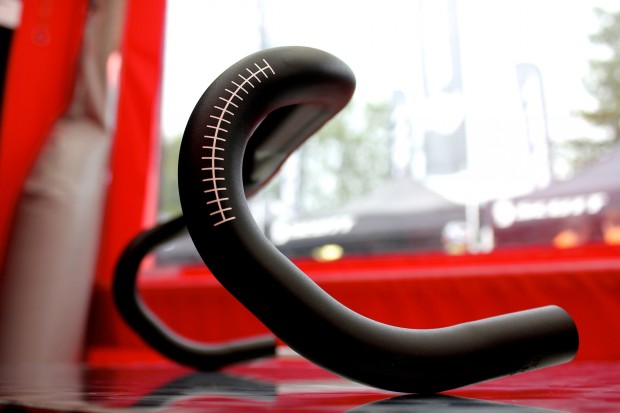
Zipp claim the more flattened shape in the SL-70’s drop offers a more secure hold, and say the bar is popular with riders who use a long and low position, achieved with a long stem and short reach bar.
Made from 7050 T6 aluminium, Zipp claim a weight of 260 grams for the SL-70 in both incarnations. It will be offered in two finishes (‘Hi Polish’ and ‘Beyond Black’) and cost £79.99.
Zipp Service Course SL-80 and Zipp Service Course SL-80 Ergo handlebar
The Service Course SL-80 is a ‘compact’ bar with a 125mm drop and a reach of 80mm. The seven degree ‘ramp angle’ is half that of the predecessor SL-SS, and the drop is 3mm less.
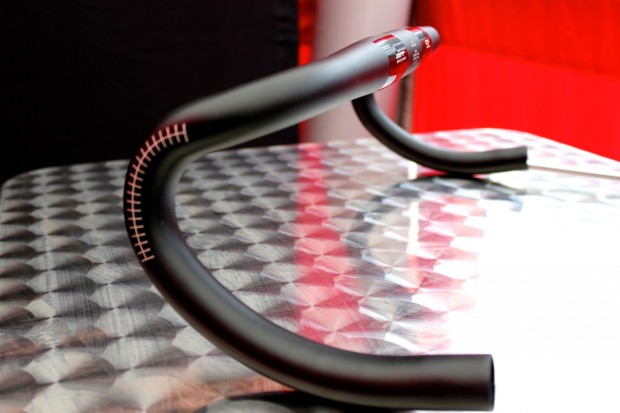
The SL-80 is made from 7050 T6 aluminium, and weighs a claimed 250 grams in its 44cm incarnation. Six sizes will be offered, from 36cm to 46cm, increasing in 2cm increments, measured centre to centre.
The bar will be offered in ‘Hi Polish’ and ‘Beyond Black’ finishes, and cost £79.99.
Zipp 60 wheelset
The 60 is Zipp’s new offering to an expanding market for ‘affordable’ carbon wheels. As the name suggests, the carbon shroud is 60mm deep and the use of an aluminium brake track is one Zipp hopes will appeal to budget-conscious riders unserved by their full carbon Firecrest range.
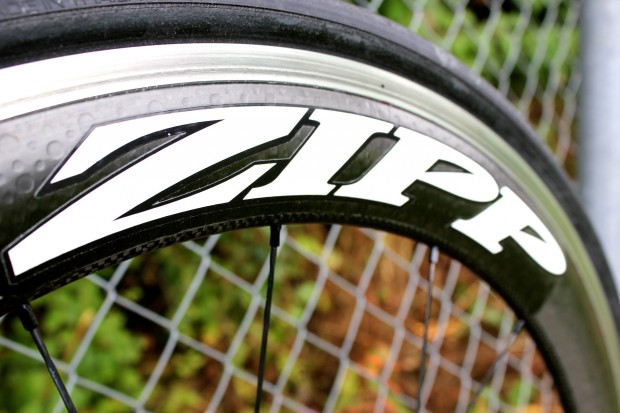
Cost savings have been realised by various economies in material and location of manufacture. The aluminium brake track is the most obvious area of economy in materials, but is still made at Zipp’s facility in Indianapolis. The hub, however, is made in Taiwan, and while equipped with stainless steel bearings, they are not the DT Swiss offerings supplied with the 60’s upscale cousins.
The wheel lacing – radial on the driveside, two-cross on the non-driveside – is a feature of most Zipp wheels and present and correct on the 60. Why? Zipp claim the radial lacing allows them to extend the hub on the driveside so it ‘pushes’ further towards the dropout, creating a stronger bracing on the side of the wheel subject to the greatest force.
The Zipp 60 wheelset will cost £1,200, or £540 for the front, and £660 for the rear.
Website: Zipp
UK distributor: Fisher Outdoor Leisure


